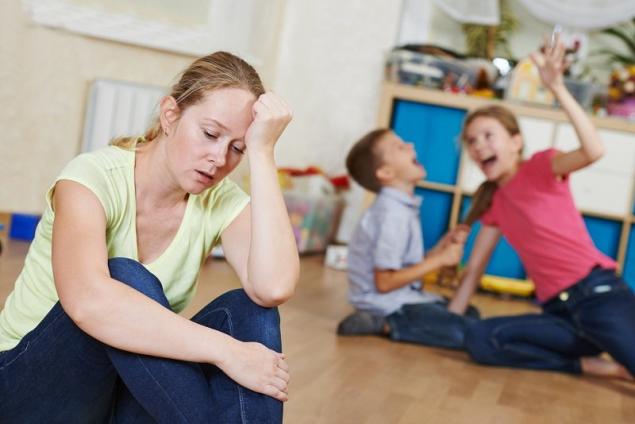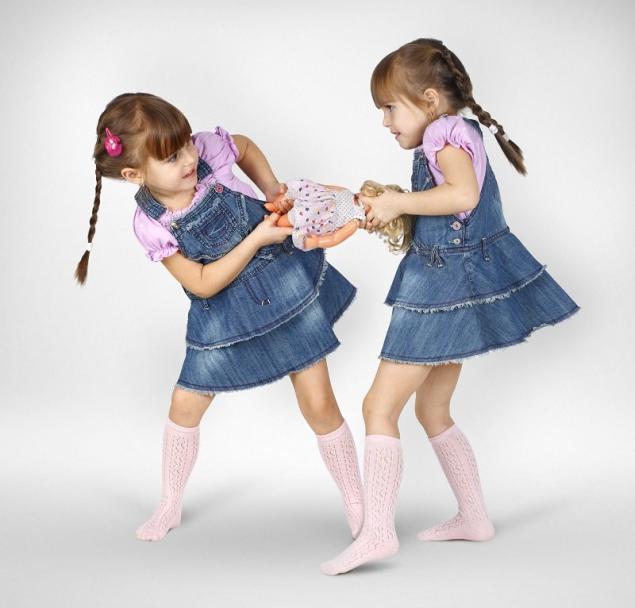187
Features of raising children in France
Having lived for some time in France, visitors begin to notice with surprise that French children never throw tantrums, do not fastidiously eat, always say hello to neighbors, do not interrupt adults and know what a “no” is.

DepositPhotos
Unfortunately, this is in stark contrast to what surrounds us. After all, almost everyone is probably familiar with parents who meekly tolerate the wildest antics of their children and literally walk in front of them on their hind legs.

DepositPhotos
How do French mothers and fathers manage to achieve such success in their upbringing? And the most important question is: What can we do to make such happiness possible for our compatriots? "Site" She shares her pedagogical secrets from Paris.
French education
Marketer Larissa Kisel moved from Minsk to Marseille in France a few years ago and founded her business there. Editorial "Site" I decided to share with you the peculiarities of school education in France on the example of Larissa’s personal experience.
All parents dream that their child grew up hardworking, that he was an assistant in all household chores. We have prepared an approximate, but not at all mandatory list, which will tell you what kind of work your little assistant can do.

DepositPhotos
Unfortunately, this is in stark contrast to what surrounds us. After all, almost everyone is probably familiar with parents who meekly tolerate the wildest antics of their children and literally walk in front of them on their hind legs.

DepositPhotos
How do French mothers and fathers manage to achieve such success in their upbringing? And the most important question is: What can we do to make such happiness possible for our compatriots? "Site" She shares her pedagogical secrets from Paris.
French education
- Being a mother in France
Under French law, new mothers either return to work 10 weeks after the birth of a child, or are forced to give up their salary in favor of a modest allowance. Grandparents rarely take part in the upbringing of children, limited to meetings on weekends or holidays. Therefore, on returning to work, French women, as a rule, give the child to a nursery or hire a nanny.
The child from a young age is surrounded by strangers, adapts faster and becomes more independent from parents.
DepositPhotos - Clear rules of conduct
French parents They clearly formulate the basic rules of conduct and steadily require their implementation. For example: in the car, the child must sit in a special seat and fasten. You can cross the road only holding an adult by the hand, you need to go to bed at a strictly defined time, you should sit at the table correctly. Different families may have different rules, but they must be followed unconditionally.
DepositPhotos - Who's in charge?
In France, all family members have roles. Parents are the main ones, children obey the main ones. French children grow up in this belief, so there is no argument or resistance in families. Children understand that obedience to adults is a rule and cannot be violated. Try this principle in your relationship with your child and you will see that it works. True, in order to fully realize their supremacy, you will have to be more strict, not try to please at any cost, and this is not easy for many parents.
One French mother explained it this way: “Your job is not to be their friend.” It doesn't work with kids. You have to be their mother and raise them well. I’d like to hold my child in my arms all day, but I know it’s not going to be good for him.”
DepositPhotos - Attitudes towards child tears
The French are calm about children’s tears. Parents should clearly understand whether the child cries for a good reason or just capricious, and be able to identify whims. If a child just threw a tantrum, adults should not pay attention to him. Most often, children arrange tantrums to attract attention, force parents to change their decision and give up.
DepositPhotos - Freedom of decision
French parents try, where possible, not to restrict the freedom of their children. They also do not interfere in children's conflicts, allowing children to learn to protect themselves. “If there is no blood, then you should not interfere!” said the French mother. An important point for all parents is to learn to distinguish between petty pranks and serious misconduct. Punishment is only for the second, because if the punishment is the same, the child will not see the difference.
DepositPhotos - Family lunches
The French believe that it is very important to get together at the dinner table at least once a day. Children and adults eat the same food, and there is virtually no “baby” food in France. Parents don’t force their children to eat new food if they don’t like it in some way, but always insist it’s worth trying.
DepositPhotos - Four important words
French education system It involves learning good manners from the earliest years. Children greet guests and neighbors, calmly behave in queues, give way to the elderly in public transport. From the diapers, they are taught to say 4 important words: “thank you”, “good day”, “please”, “goodbye”.
DepositPhotos - Time to dream
Parents are not sure that a five-year-old Frenchman can read. After all, childhood is a time when the main thing is to learn to dream, learn the world around, learn to be polite and responsible. The child will learn to read and write.
DepositPhotos - Sunday is a family day
On this day, the whole family goes to the park, for a picnic, a bike ride. The French are very careful about this day and try to finish all the housework on Saturday.
DepositPhotos - Pocket money
When going to the supermarket, children are usually not hysterical about the goodies that parents refused to buy them, as they can buy them for pocket money. The first pocket money children begin to receive at the age of 7 years. Usually their monthly size is equal to the age of the child.
DepositPhotos
Marketer Larissa Kisel moved from Minsk to Marseille in France a few years ago and founded her business there. Editorial "Site" I decided to share with you the peculiarities of school education in France on the example of Larissa’s personal experience.
All parents dream that their child grew up hardworking, that he was an assistant in all household chores. We have prepared an approximate, but not at all mandatory list, which will tell you what kind of work your little assistant can do.

































